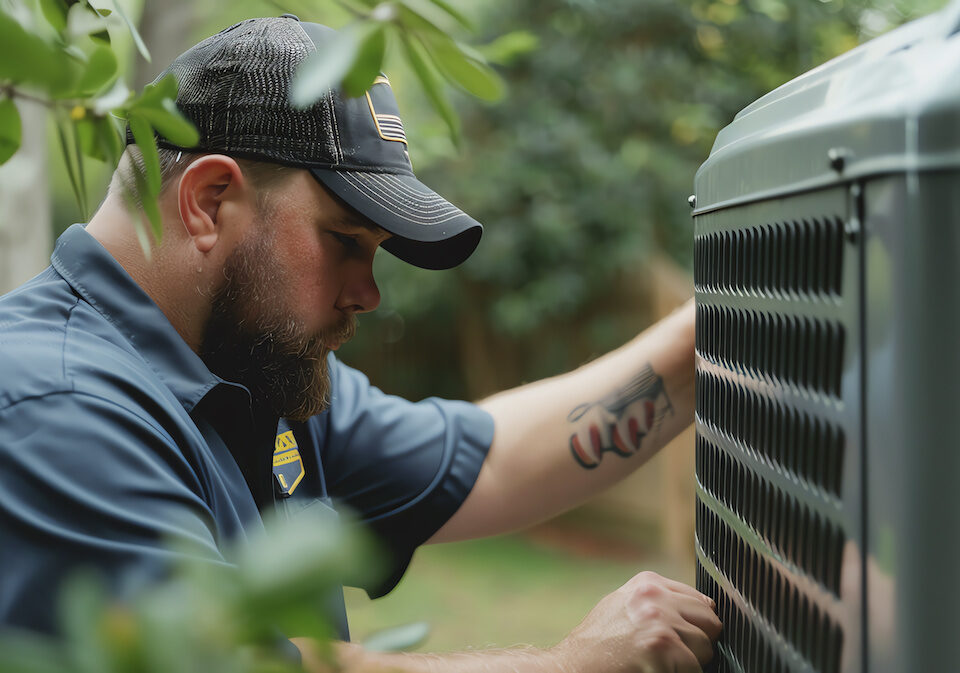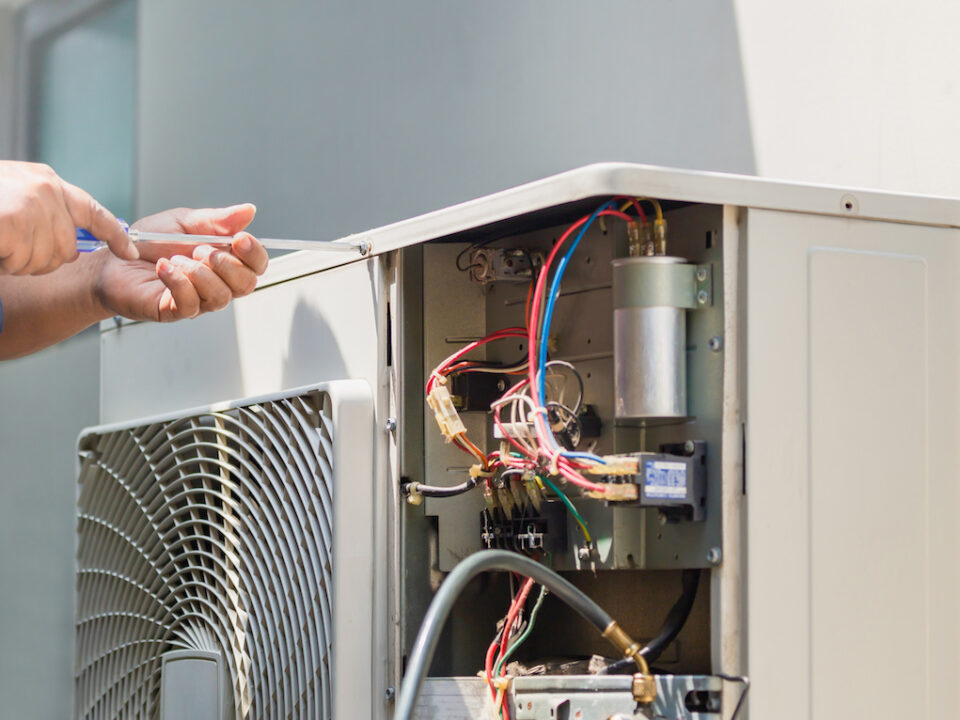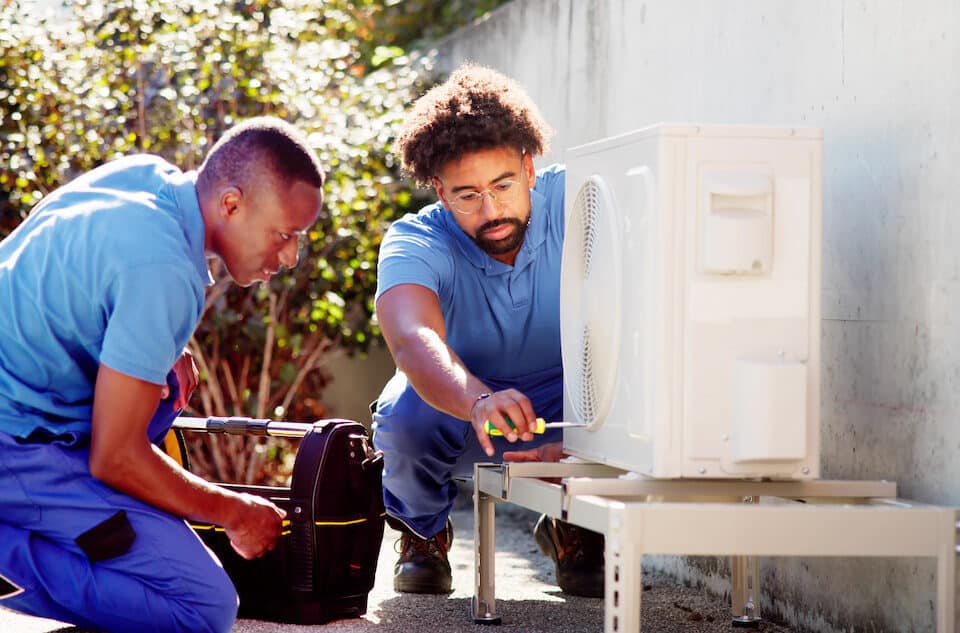Winterizing Your HVAC System for a Cold Winter
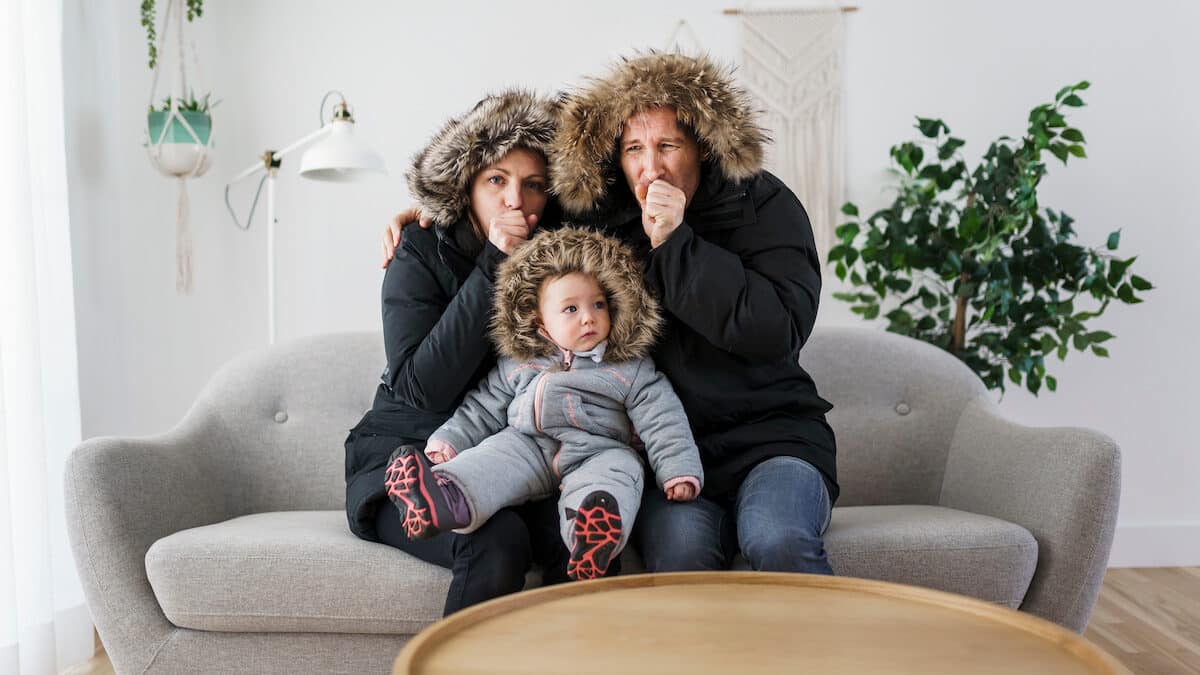
As the days grow shorter and the temperatures drop, homeowners across the colder regions of the world prepare for the challenges of winter. Among the many tasks on the winterization checklist, one critical aspect often overlooked is the HVAC (Heating, Ventilation, and Air Conditioning) system. Winterizing your HVAC system is essential for maintaining a warm and comfortable indoor environment while maximizing energy efficiency and minimizing utility bills during the cold months.
In this article, we’ll walk you through the steps to winterize your HVAC system effectively. From routine maintenance to advanced strategies for optimizing its performance, you’ll learn how to:
- Ensure your heating system operates flawlessly
- Keeps your home cozy
- Doesn’t strain your budget
So, let’s dive into the world of HVAC winterization and discover the key to a warm and energy-efficient winter.
Understanding the Importance of Winterizing Your HVAC System
Winterizing your HVAC system is more than just a routine chore; it’s a crucial step in preparing your home for the harsh winter weather.
As the temperature drops, your heating system works harder to maintain a comfortable indoor climate, placing increased demands on its components. Neglecting winterization can lead to:
- Reduced efficiency
- Higher energy bills
- System breakdowns
- An uncomfortable living or working environment
A system breakdown is the worst of these and will leave you in the cold when you need warmth the most.
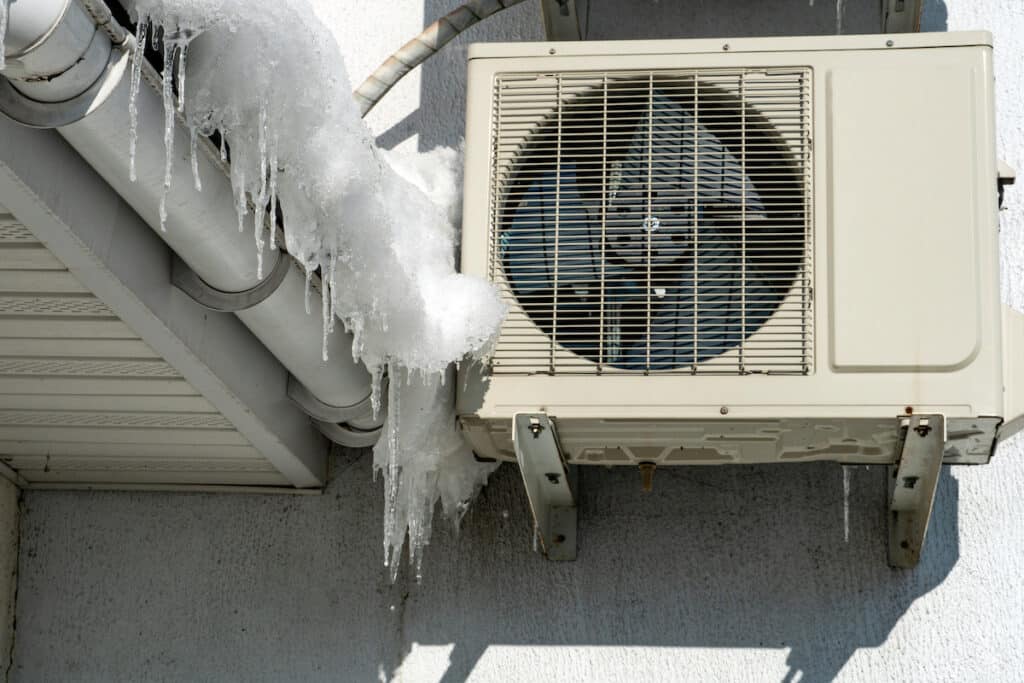
Benefits of Winterizing Your HVAC System
Winterizing your HVAC system isn’t just a seasonal chore; it’s a strategic investment in your home’s comfort, energy efficiency, and financial well-being. Let’s delve deeper into the benefits of winterizing your HVAC system:
Enhanced Energy Efficiency
One of the most significant advantages of winterizing your HVAC system is improved energy efficiency. When your system is operating at peak efficiency, it requires less energy to maintain a comfortable indoor temperature. This translates into lower energy bills throughout the winter months, saving you money in the long run.
Proper winterization ensures that your HVAC system doesn’t have to work harder than necessary to heat your home, which can result in substantial cost savings over the winter season.
Extended Equipment Lifespan
HVAC systems are significant investments, and you want them to last as long as possible. Neglecting winterization can lead to unnecessary wear and tear on your system. When your HVAC system works inefficiently, it experiences more strain, which can lead to premature breakdowns and the need for costly repairs or replacements.
By winterizing your HVAC system, you help extend its lifespan, reducing the likelihood of unexpected expenses and ensuring you get the most value from your investment.
Improved Comfort
Winterizing your HVAC system contributes to a consistently comfortable indoor environment. A well-maintained system operates smoothly, distributing warm air evenly throughout your home.
This means no more chilly spots or uneven heating, ensuring that every room is cozy and comfortable during the winter months. Enhanced comfort also means fewer complaints from family members or house guests about being too cold, leading to a more pleasant living environment.
Better Indoor Air Quality
During the winter, homes are often sealed tight to keep the cold air out. While this is an effective way to conserve energy, it can lead to a decrease in indoor air quality. With fewer opportunities for fresh air to circulate, pollutants and allergens can become trapped inside.
Winterizing your HVAC system includes changing or cleaning air filters, which helps maintain better indoor air quality by capturing dust, pet dander, pollen, and other particles. Clean filters ensure that the air your HVAC system circulates is healthier to breathe, especially during the winter when you spend more time indoors.
Peace of Mind
Knowing that your HVAC system is well-prepared for the winter months provides peace of mind. The last thing you want during a cold snap is to deal with a malfunctioning or inefficient heating system. Winterizing your HVAC system reduces the risk of unexpected breakdowns, ensuring that you have a reliable source of warmth when you need it most. This peace of mind not only contributes to your overall well-being but also helps you feel confident that your home is ready to face the challenges of winter.
Reduced Environmental Impact
Improving the efficiency of your HVAC system through winterization also has environmental benefits. When your system operates more efficiently, it consumes less energy, reducing your carbon footprint. This eco-friendly approach to heating not only benefits the environment but also aligns with the growing focus on sustainability and energy conservation.
By reducing your energy consumption during the winter, you contribute to the collective effort to minimize the impact of climate change.
Steps to Winterize Your HVAC System
1. Change or Clean Air Filters:
- Start by replacing or cleaning your HVAC system’s air filters. Clogged filters restrict airflow, reducing the system’s efficiency and causing it to work harder. Clean filters ensure optimal performance and better indoor air quality.
2. Inspect and Seal Ductwork:
- Check your ductwork for leaks, gaps, or damage. Sealing and insulating ducts can prevent heat loss and improve heating system efficiency. Consider professional duct sealing if necessary.
3. Check the Thermostat:
- Verify that your thermostat is functioning correctly. Calibrate it for accuracy, and consider upgrading to a programmable thermostat for precise temperature control and energy savings.
4. Schedule Professional Maintenance:
- Arrange for a professional HVAC technician to inspect and service your system. They will clean and lubricate components, check for worn parts, and ensure your system operates at its best.
5. Ensure Proper Ventilation:
- Proper ventilation is vital for maintaining indoor air quality and preventing the buildup of harmful pollutants. Ensure that vents and air intakes are unobstructed.
6. Clear Outdoor Units:
- Remove debris, leaves, and snow from outdoor HVAC units to prevent blockages and maintain proper airflow. Trim any nearby vegetation to allow adequate clearance.
7. Upgrade to a Programmable Thermostat:
- Consider investing in a programmable thermostat if you don’t already have one. This technology allows you to set temperature schedules to optimize comfort and energy savings when you’re away from home or sleeping.
Efficiency Tips for Winter HVAC Operation
- Use Zoning Systems
- If possible, install zoning systems that allow you to control the temperature in different areas of your home independently. This minimizes heating in unused spaces and can save you money on the electricity bill.
- Adjust the Temperature
- Lower your thermostat when you’re away from home or sleeping. Every degree you lower the temperature can result in significant energy savings. This will also ensure that your HVAC isn’t overworking when it doesn’t need to be.
- Utilize Natural Heat
- Take advantage of natural heat and during sunny winter days, open curtains or blinds to let natural sunlight warm your home. At night, close them to insulate against the cold and keep the heat in.
- Invest in Insulation
- Improve insulation in your home, especially in attics, walls, and crawl spaces because these are the areas where the most warm air will escape. Adequate insulation prevents heat from escaping and keeps your home warmer.
- Seal Leaks and Gaps
- Inspect doors and windows for drafts, and seal any gaps or cracks with weatherstripping or caulk to prevent cold air from entering and warm air from escaping.
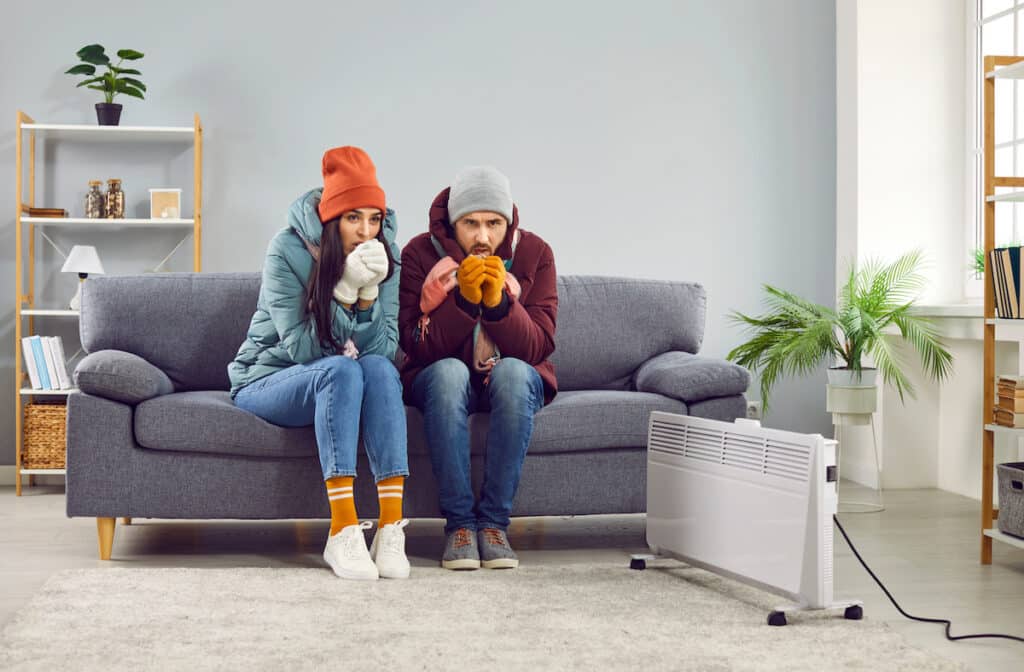
Troubleshooting Common Winter HVAC Problems
- Uneven Heating
- If some rooms are consistently colder than others, it may indicate issues with ductwork, insulation, or thermostat settings. These issues should be addressed quickly to avoid HVAC problems. Consider professional assistance to diagnose and address the problem.
- Strange Noises
- Unusual sounds like banging, whistling, or clanking could be signs of underlying issues. These noises should be investigated promptly by a professional to prevent further damage.
- Inadequate Heat
- If your HVAC system struggles to heat your home adequately, it could be a sign of a deeper, underlying issue and it may need repairs or adjustments right away. Contact an HVAC technician to assess the issue promptly.
- High Energy Bills
- Sudden spikes in energy bills can be indicative of HVAC inefficiency or problems. Regular maintenance and addressing issues promptly can help reduce energy costs.
Don’t Push Off Winterizing Your HVAC System
As winter approaches, taking the time to winterize your HVAC system is a wise investment in your home’s comfort, energy efficiency, and longevity of your heating system.
By following these steps and incorporating efficiency tips, you can ensure that your HVAC system performs optimally during the coldest months, keeping you warm and cozy without breaking the bank.
A well-maintained HVAC system not only reduces energy costs but also provides the peace of mind that comes with a reliable source of winter warmth. So, don’t wait—start your HVAC winterization journey today and enjoy a comfortable and energy-efficient winter season.
Need help winterizing your HVAC system? Reach out to our team at Trust Heating and Air! We’ll make sure you’re prepared for the chilly winter months ahead!

